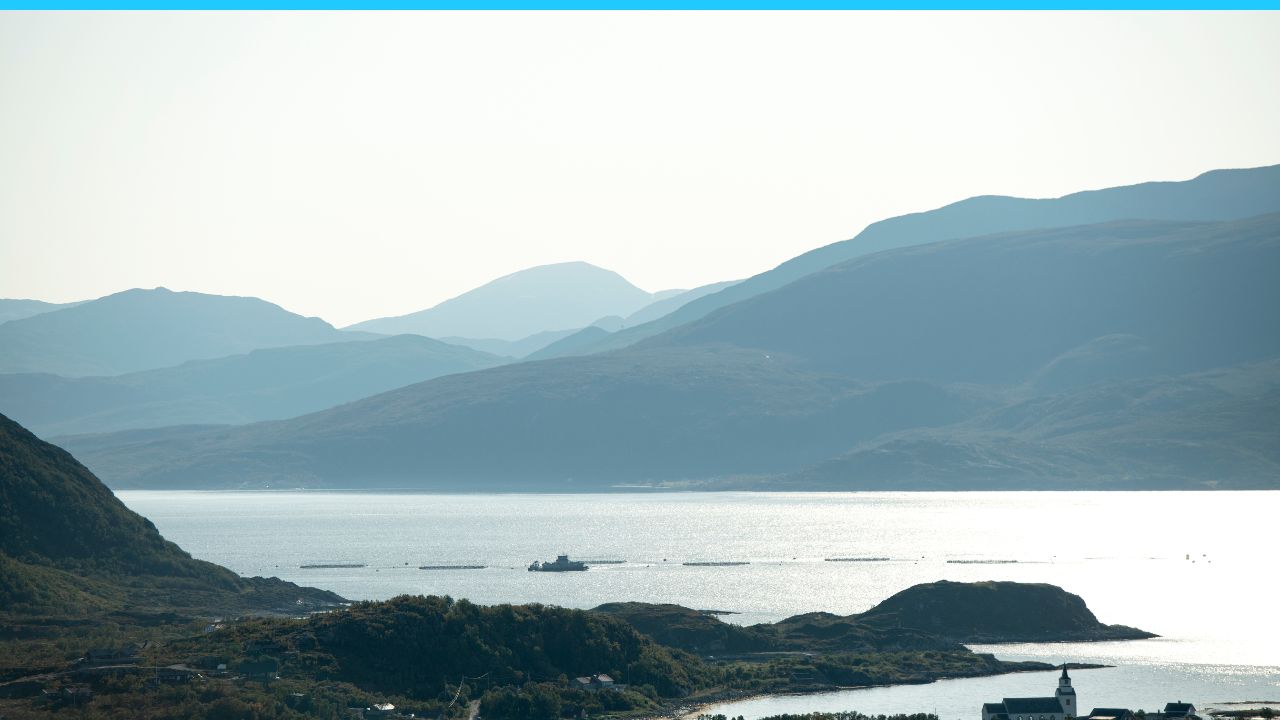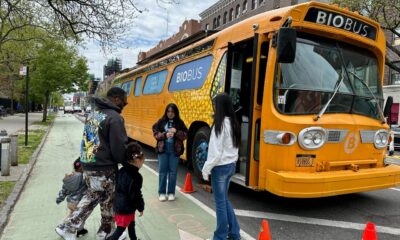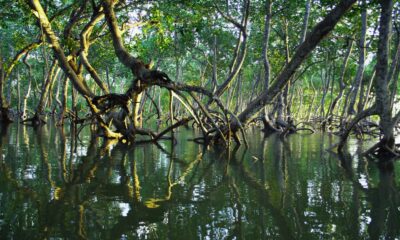Civic Science Observer
Questions that need addressing in order to build an assessment framework for community co-produced Arctic research Initiatives

As the Arctic faces rapid environmental change, there is a need for increased involvement and leadership from the communities who are most affected by these changes. Indigenous peoples’ perspectives on climate change have been increasingly regarded as critical to developing sustainable solutions. While indigenous knowledge and western scientific knowledge are fundamentally distinct, these systems may be brought together to provide a deeper understanding of current and future Arctic change.
The co-production of knowledge (CPK) is a method of addressing and building solutions to problems using diverse ways of knowing [1]. As a practice, CPK is constantly evolving to meet changing knowledge systems, environments, andsocietal needs. This research proposal focuses specifically on the co-production of knowledge as it relates to western scientific understanding and indigenous knowledge of environmental change.
It is important to acknowledge that ‘Indigenous Knowledge (IK)’ is used as an all-encompassing term for the purpose of comparison to other knowledge systems. However, knowledge systems within IK vary drastically from each other and depend on tribal affiliations, geographic location, language, history etc.[2]. Generally, indigenous knowledge is developed over thousands of years and remembered through cultural practices, intergenerational relationships, and deeply rooted ties to place [3]. Indigenous knowledge, like western science, is and will be a constantly evolving system.
CPK is a fairly new term in describing research practices and can look like many different things on the ground. For example, there is a research project in Kotzebue, Alaska called Ice Bridges (Ikaaġvik Sikukun) that has used co-production research methods to examine sea ice change. During the course of this project project, the Kotzebue Elders Advisory Council proposed the research questions and helped guide sea ice researchers in remote locations that the Inupqia people were familiar with.
After this data collection, indigenous representatives and researchers worked together to interpret the results and form an ongoing sea ice monitoring plan. While co- production of knowledge is a complex process that may be applied to many different types of partnerships, this example illustrates that CPK, on the ground, involves community engagement in every research step from developing questions, to data collection, and to the dissemination of results. This will require more outreach and communication than scientific processes have utilized in the past
Research institutions are beginning to recognize a need for multiple bodies of knowledge to inform sustainable solutions. However, these emerging partnerships between indigenous experts and scientists face challenges in communicating their respective values, needs, and ways of experiencing and responding to change. While many organizations have discussed protocol and guidelines for achieving co-production of knowledge in Arctic research, these efforts are just beginning and the overall landscape of CPK is relatively undocumented. In addition, there is very little feedback or assessment of these partnerships available.
As such, there is a need develop a cohesive framework to assess the impacts of co-produced research partnerships and their ability to create sustainable and equitable solutions to complex climate issues.
To do so, the first task is to assess the impact of CPK initiatives by exploring the current landscape of existing projects and partnerships. Using a survey distributed to existing knowledge holders and experts (ie. communities, researchers, indigenous experts, policymakers), there is a need to determine the current level of participation in developing a co-production of knowledge assessment framework. The survey can also examine the current perceptions of what CPK is and the timeline for when collaborators should be involved in research. This CPK landscape exploration could provide a roadmap to convene all of the identified experts and participants (via a focus group) to determine what a successful CPK initiative should achieve and what knowledge it could produce.
The focus group could allow for the development of both qualitative and quantitative data through the discussions and forums. Ultimately, building a cohesive framework will not be possible until the needs, goals, and priorities of communities are identified and articulated. This requires open and inclusive dialogue to build the necessary trust between western researchers, indigenous experts, and policymakers for successful CPK.
Another important task is to determine the impact of the NSF Funded “Navigating the New Arctic Initiative.” Navigating the New Arctic (NNA) is a new initiative funded by the NSF to increase the creation and dissemination of new knowledge to inform the resilience of Arctic climate, security, and society. NNA has already funded several research projects with the goal of partnering western researchers with indigenous communities to study climatic changes.
NNA is one of the few CPK initiatives that has received direct and constructive feedback from indigenous representatives in the form of community letters, providing an opportunity to study the assessment methods that already exist. In this aim, a case study approach can be used to study NNA and the documented feedback and project outcomes through the letter thread and public discourse between the NSF and Western Alaska tribal organizations and representatives.
It is important to note that the process of creating this assessment framework will involve partnering with and co-producing with indigenous organizations and community members, meaning these research aims are flexible and able to adapt to feedback or differing research goals of all people involved in the process.
The intellectual merit: Co-production of knowledge is a relatively new approach to Arctic climate research and collaborations. This research will generate a new inclusive framework for assessing the impacts of these initiatives to ensure implementation is meeting the needs and ethics of all parties involved. Resources will be devoted to assessing current CPK projects, rather than creating new projects, which are likely to aggravate existing problems.
This allows researchers and experts a chance to compare methods and adapt to meet shifting definitions of project success. A cohesive framework will also develop a common language between people and organizations working in the realm of Arctic CPK. This framework vocabulary will allow for increased coordination and communication between groups working on similar research projects.
The broader impacts: An informed, inclusive, and cohesive assessment framework of CPK initiatives will strengthen these efforts to include critical voices and perspectives in climate research processes. Rather than research that follows one-sided priorities, the approach proposed here could support the efforts of prioritizing ‘bottom-up’ participatory science.
Developing these protocols will further a necessary shift in power away from research institutions and into the hands of the communities where research is occurring [4]. As others have mentioned, a decolonized research agenda must be implemented and constantly adapted to meet the needs of indigenous communities and goals [5]. In turn, the assessment methods produced might allow for reproducible research to be applied to upcoming co-produced initiatives in other research fields and regions. Constant and clear communication between knowledge systems will enable long-term, sustainable solutions to ‘wicked problems’.
References
[1] Armitage, D., Berkes, F., Dale, A., Kocho-Schellenberg, E., & Patton, E. (2011). Co- management and the co-production of knowledge: Learning to adapt in Canada’s Arctic. Global Environmental Change, 21(3), 995–1004. https://doi.org/10.1016/j.gloenvcha.2011.04.006
[2] Huntington, H., & Fox, S. (2004). The Changing Arctic: Indigenous Perspectives. Arctic Climate Impact Assessment. https://doi.org/https://www.amap.no/documents/download/1084/inline
[3] Pedersen, C., Pfeifer, P., Loseto, L., & Paquin, B. (2020, November 10). Inclusion Matters: Indigenous Knowledge and Arctic Research. Arctic Research Consortium of the United States. https://research.uarctic.org/media/1601121/inclusion-matters-webinar-poster.pdf
[4] McGrath, J. (2003). Janet McGrath On IQ. Meridian Canadian Polar Commission. http://www.polarcom.gc.ca/uploads/Publications/Meridian%20Newsletter/meri_03_spring_en.pdf
[5] Muotka, P. H. (2020, September 24). Co-creating research projects – some personal experiences from Saami Council and Arctic researchers. Sámiráđđi. https://www.saamicouncil.net/news-archive/co-creating-research-projects-some-personal- experiences-from-saami-council-and-arctic-researchers
The story above was produced through the Civic Science Journalism Internship Program hosted in the CS Media Lab. The internship program provides undergraduate students with the opportunity to research and report about ongoing developments across civic science fields such as public engagement, science communication, citizen science, science policy, and others. Through investigative storytelling, interns produce in-depth thought pieces that contribute to ongoing discussions and serve as guides for future coverage.

-
 Audio Studio1 month ago
Audio Studio1 month ago“Reading it opened up a whole new world.” Kim Steele on building her company ‘Documentaries Don’t Work’
-
Civic Science Observer1 week ago
‘Science policy’ Google searches spiked in 2025. What does that mean?
-
Civic Science Observer1 month ago
Our developing civic science photojournalism experiment: Photos from 2025
-
Civic Science Observer1 month ago
Together again: Day 1 of the 2025 ASTC conference in black and white
Contact
Menu
Designed with WordPress
























